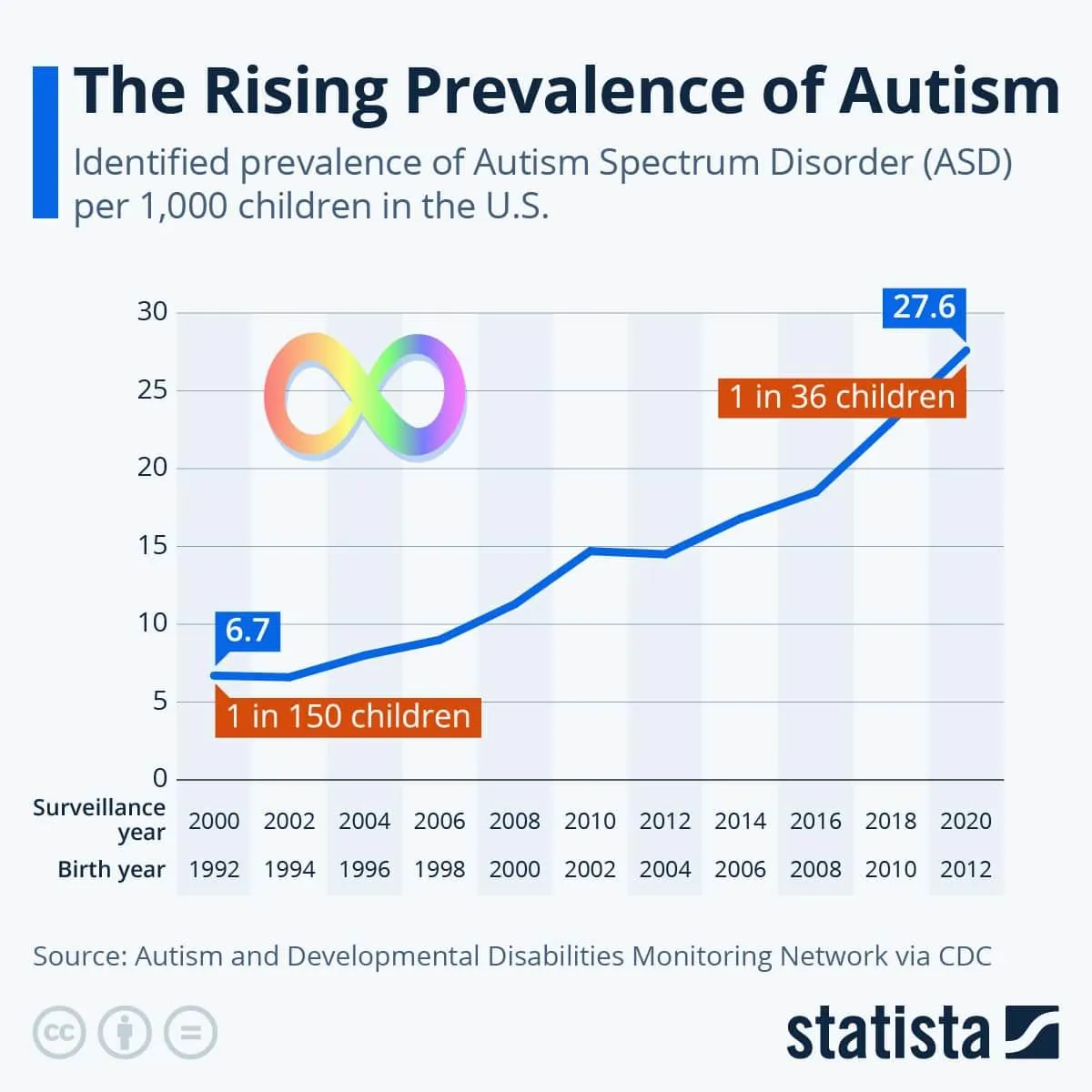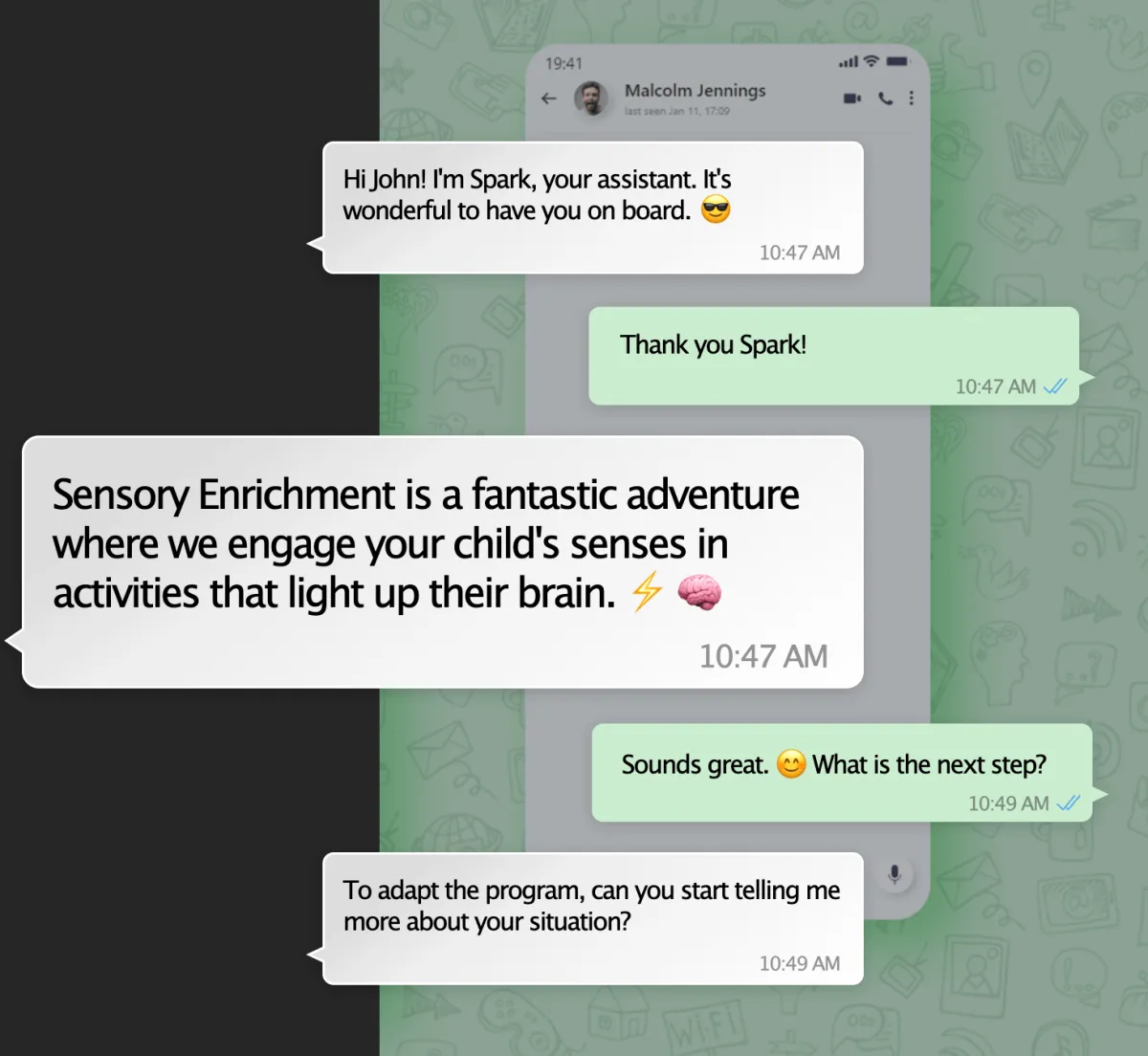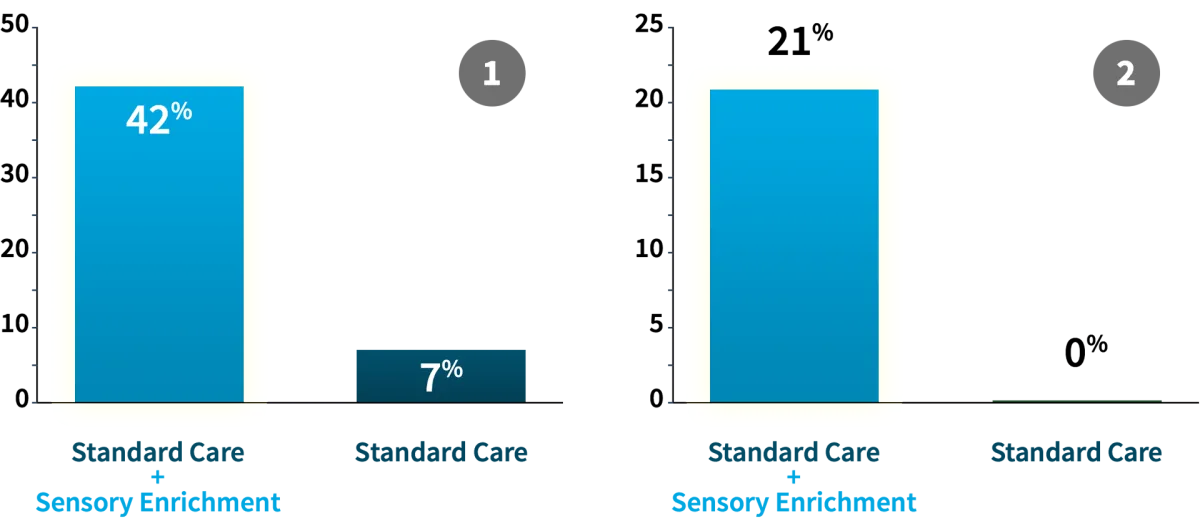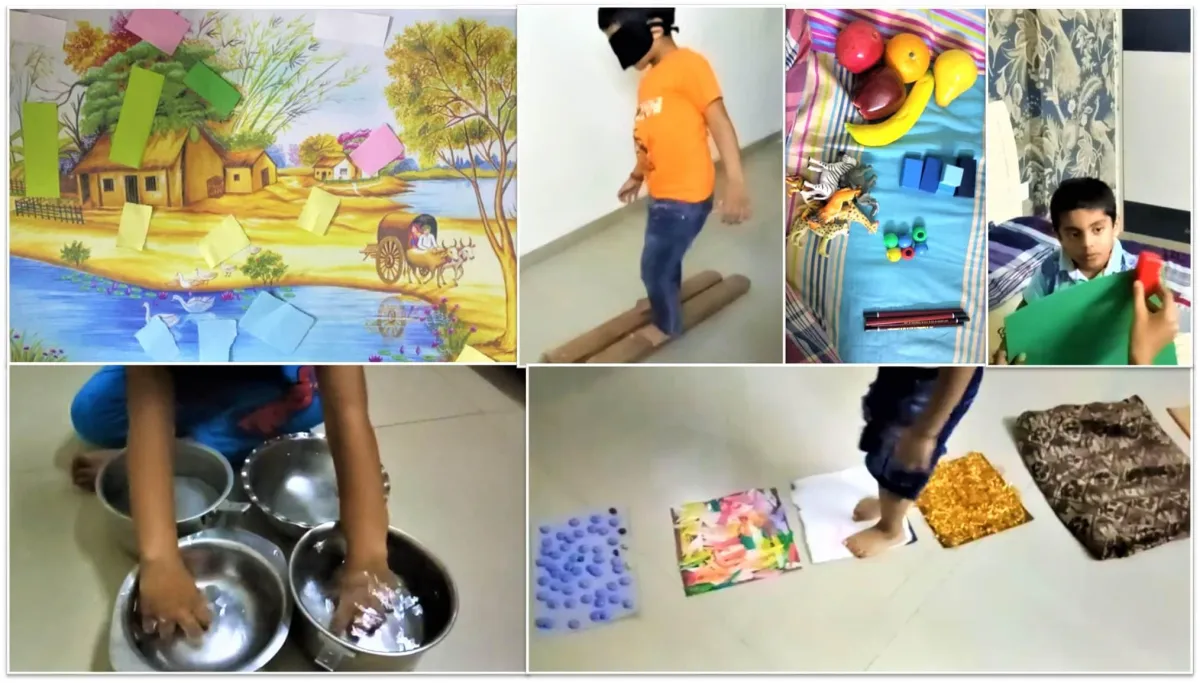Our Vision
Autism Therapy for All the World’s Children
Empowered by Conversational A.I.
Problem #1
Accelerating prevalence of developmental and learning conditions.
All over the world, at least 1 child in every 100 born ends up diagnosed with Autism. In the US, as of 2023, the prevalence of autism for children 1 in 36.
It used to be 1 in 150 in 2000.
Autism prevalence has grown by 178% since 2000.

Problem #2
Limited access to clinically proven therapies, especially in remote areas.
In the US, there are over 200,000 board certified behavior therapists (BCBA) to help 1,000,000 children.
The rest of the world shares 13,000 behavior therapists for the remaining 6,500,000 children with autism.
The country with the highest incidence of autism is the UK, but they only have 800 autism behavior therapists to help their 100,000 autistic children.
In all the world, only 8% of the autistic children have access to a board-certified behavior therapist.
So…
What happens to the 92% of children with autism who cannot access therapy?
Brazil has 55 autism behavior therapists to help 200,000 autistic children.
India has 203 therapists to serve 1.3 Million children with autism.
China has 1,500 therapists for their 900,000 autistic children.
Ethiopia and the vast majority of African countries don’t have any therapists to help their 185,000 children with autism.
Problem #3
Even for families who can access ABA, therapy is slow, stressful, and expensive.
It’s time for a solution that works!
Solution #1
Scalable
&
Easy to Access
Conversational A.I.
“The best interface is no interface”
Feels like you’re just texting a friend
Very familiar and comfortable
No buttons to figure out
Speak in your native language
There is nothing superfluous to come in the way, no friction.

Solution #2
Clinically Proven Effective
In randomized controlled trials Sensory Enrichment Therapy was shown to be 6X more effective than standard care alone. All the children in the study were doing ABA. Some of them were also doing a mix of occupational therapy, physiotherapy and speech therapy.

The children in the Sensory Enrichment group were 6X more likely to achieve clinical gains during the 6-month clinical trial.
But what is even more interesting is that 21% of the children in the sensory Enrichment group improved so much that they no longer qualified for their initial diagnosis after 6 months.
None of the children who did standard care improved enough to see that change.
Our clinically proven therapy can be used in combination with ABA or it can be use as a standalone solution.
Additional findings:
IQ improves by an average of 8 points
Older children improve a bit faster than the younger ones
Improvements are generalized across many symptoms, including:
• Social Skills
• Attention Span
• Speech Development
• Learning
• Mood & Behavior
• Anxiety
• Sensory Processing
• Eating
• Self-Awareness
• Memory
• Fine Motor Skills
• Gross Motor Skills
• Sleep
Solution #3
Easy to Do in Any Home

The whole program takes about 10 minutes to do each day and requires no special equipment.
Smart enough to actually make your life easier
The app has smarts built into it to adapt to the parents’ habits and recognize:
• when it is a good time to remind them,
• when it is a good time to ask them questions about the child,
• which questions can be skipped,
• what kind of progress the caregiver should expect,
• what to watch for,
and
• tracks data automatically.
Join us!
We need to help the kids that no one else wants to help!
Autism is just the beginning.
For every child with autism around the globe there are 6 more with other conditions.
Don’t forget the millions and millions of adults who are looking for ways to prevent cognitive decline.
© Copyright Spark 2025
